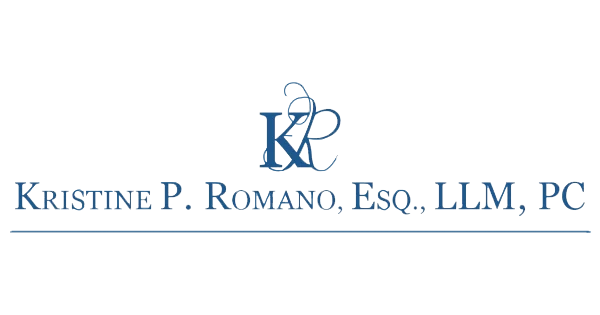What Happens If You Don’t Have a Will in Southborough?
Dying Without a Will and How Proper Planning Helps Protect Your Family's Future
Thinking about what happens after we pass away is never easy, but avoiding the conversation can create major challenges for your family. In Massachusetts, if you die without a will, known as dying “intestate”, your assets will be divided according to the state’s intestacy laws.
Without a will, your loved ones may face unnecessary stress, conflict, and delays during the probate process. Working with a probate attorney in Southborough ensures your wishes are documented and legally enforceable, sparing your family from uncertainty in an already emotional time.
What Happens Without a Will?
When someone dies without a valid will, Massachusetts' intestacy laws take over. These laws establish a strict order of heirs, typically starting with a surviving spouse, then children, parents, and siblings.
This may sound straightforward, but intestacy often creates problems:
- Unintended heirs: Assets could pass to relatives you’re not close to, or even those you would not want inheriting from you.
- Unprotected partners: If you’re unmarried, your partner generally won’t inherit under intestacy unless they’re on the title, named as a beneficiary, or you were legally married (Massachusetts doesn’t create inheritance rights for ‘common‑law’ partners, though it does honor common‑law marriages validly formed in other states).
- Family disputes: Relatives may argue over property, money, or even sentimental items, adding conflict to grief.
The Probate Process in Massachusetts
Even with a will, most estates go through probate—the court-supervised process of validating a will and distributing assets. Without a will, probate can become longer and more complicated.
The Role of an Executor (or Personal Representative)
In a will, you name an executor to manage your estate. This person is responsible for paying debts, filing taxes, and distributing assets. Without a will, the court appoints someone, who may not be who you would have chosen.
Under Massachusetts law, the Personal Representative is a fiduciary and must administer the estate expeditiously and in the estate’s best interests.
Why Probate Takes Longer Without a Will
When there’s no clear guidance, the court must determine heirs, resolve disputes, and oversee asset distribution. This often delays the process, increases costs, and adds stress for your family.
Why You Need More Than Just a Will
A will is only one piece of a complete estate plan. An experienced probate attorney in Southborough can help you create additional documents that protect you during your lifetime and after:
- Power of Attorney – appoints someone to make financial decisions if you’re incapacitated
- Health Care Proxy – the legally recognized document that authorizes your agent to make medical decisions if you lose capacity.
- Personal Directive/Living Will – Massachusetts has
- no statute making living wills legally binding, but a written Personal Directive can guide your Health Care Proxy and clinicians
- Trusts – can help manage distributions, protect young beneficiaries, or reduce probate involvement
Tips for Planning Your Estate in Southborough
Estate planning is about more than just dividing assets, it’s about making thoughtful decisions that reduce stress for your loved ones and ensure your wishes are carried out. Whether you’re just starting the process or updating an old plan, here are a few important steps to consider.
Talk with Loved Ones
Discussing your intentions can avoid surprises and reduce conflict later. For example, ask your children if they want to inherit the family vacation home before including it in your will.
Choose the Right Personal Representative (Executor)
The executor is essentially the “business manager” of your estate. Pick someone who is organized, financially responsible, and willing to carry out your wishes, even in the face of family disagreements.
Work with a Probate Attorney
Estate planning is not one-size-fits-all. A probate attorney in Southborough can tailor documents to your family’s unique needs, explain your options in plain language, and guide you through decisions with care and compassion.
Key Takeaways
- Without a will in Southborough, Massachusetts, intestacy laws decide who inherits your probate property.
- Unmarried partners and non-traditional family structures are especially vulnerable without a will.
- Probate without a will often takes longer, costs more, and may create unnecessary conflict.
- A will is only the first step; complete estate planning includes powers of attorney, health care proxies, and possibly trusts.
- Working with a probate attorney in Southborough helps protect your wishes and your loved ones’ peace of mind.
Taking the Next Step
Planning ahead is one of the most meaningful gifts you can give your loved ones. A thoughtful estate plan reduces stress, avoids unnecessary conflict, and ensures your wishes are respected when you can no longer speak for yourself. Whether you are updating old documents or creating a plan for the first time, guidance from a probate attorney in Southborough helps you feel confident that your family will be cared for.
Schedule a consultation today with Kristine Romano, Probate and Estate Planning Attorney in Southborough. Contact Kristine Romano Law today to start planning with confidence.
References: Massachusetts Intestacy Laws – Mass.gov and American Bar Association – Estate Planning FAQ and Pittsburgh Post-Gazette: “Placing the puzzle pieces of long-term care and planning a will”.



